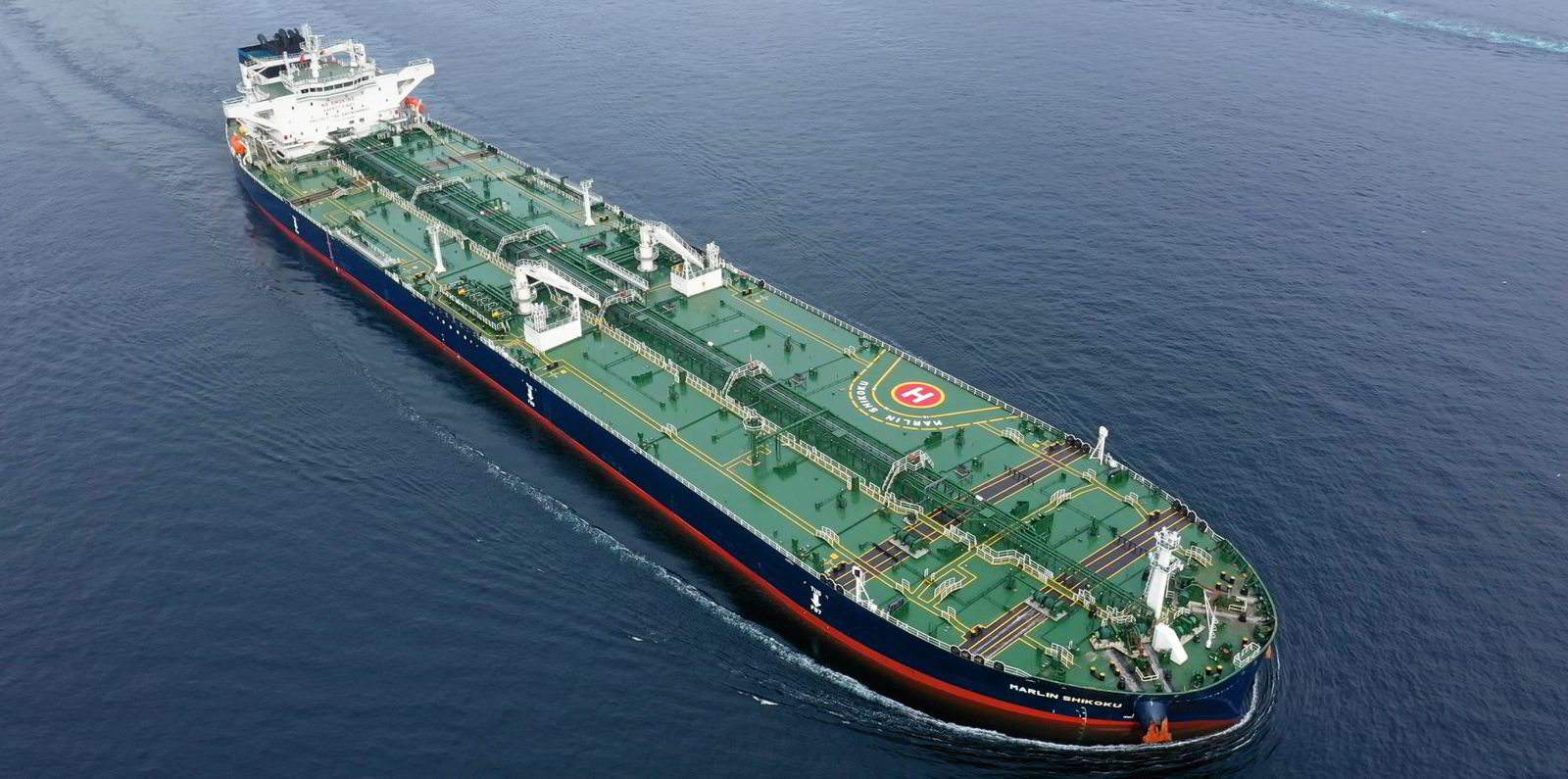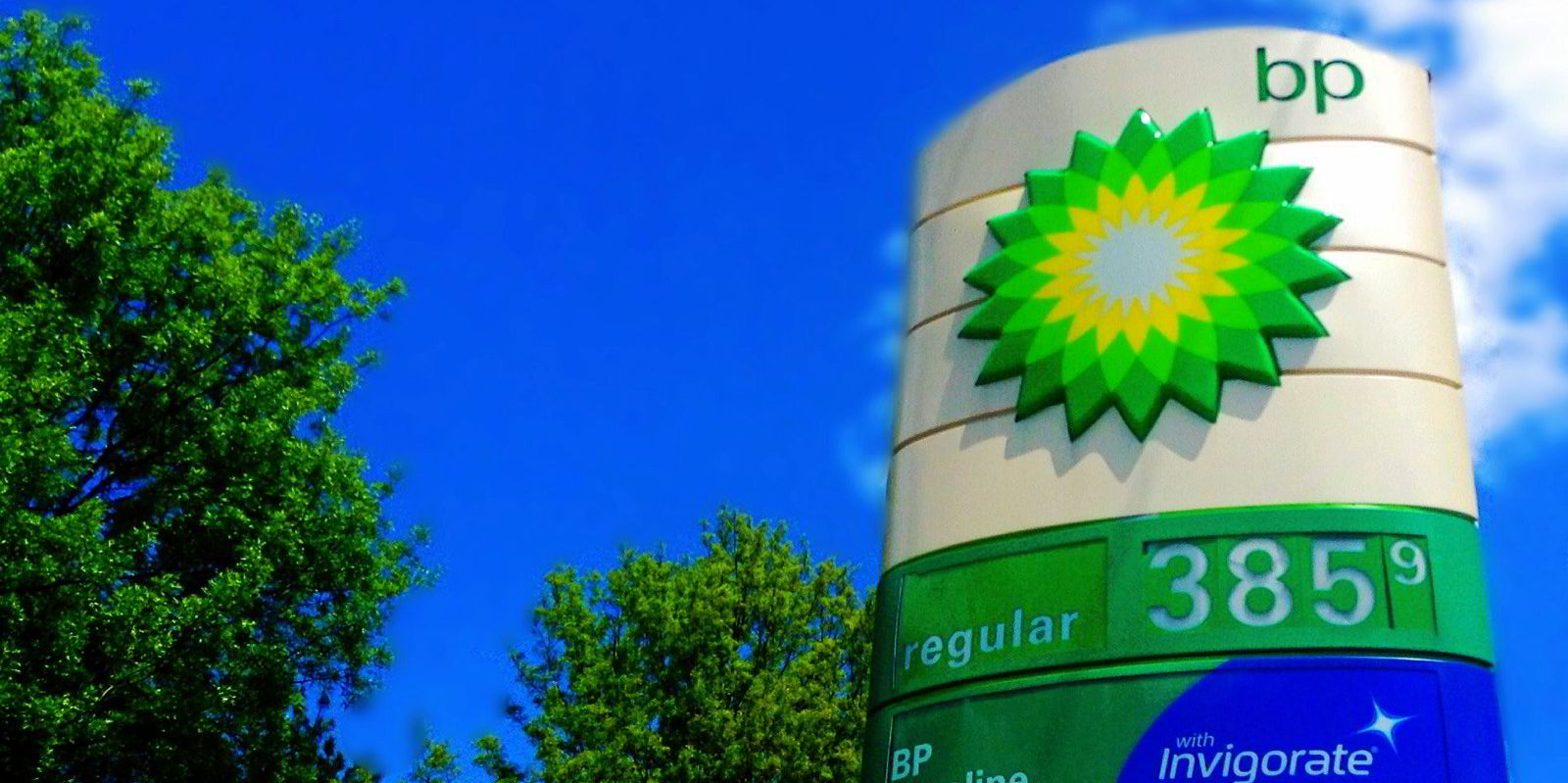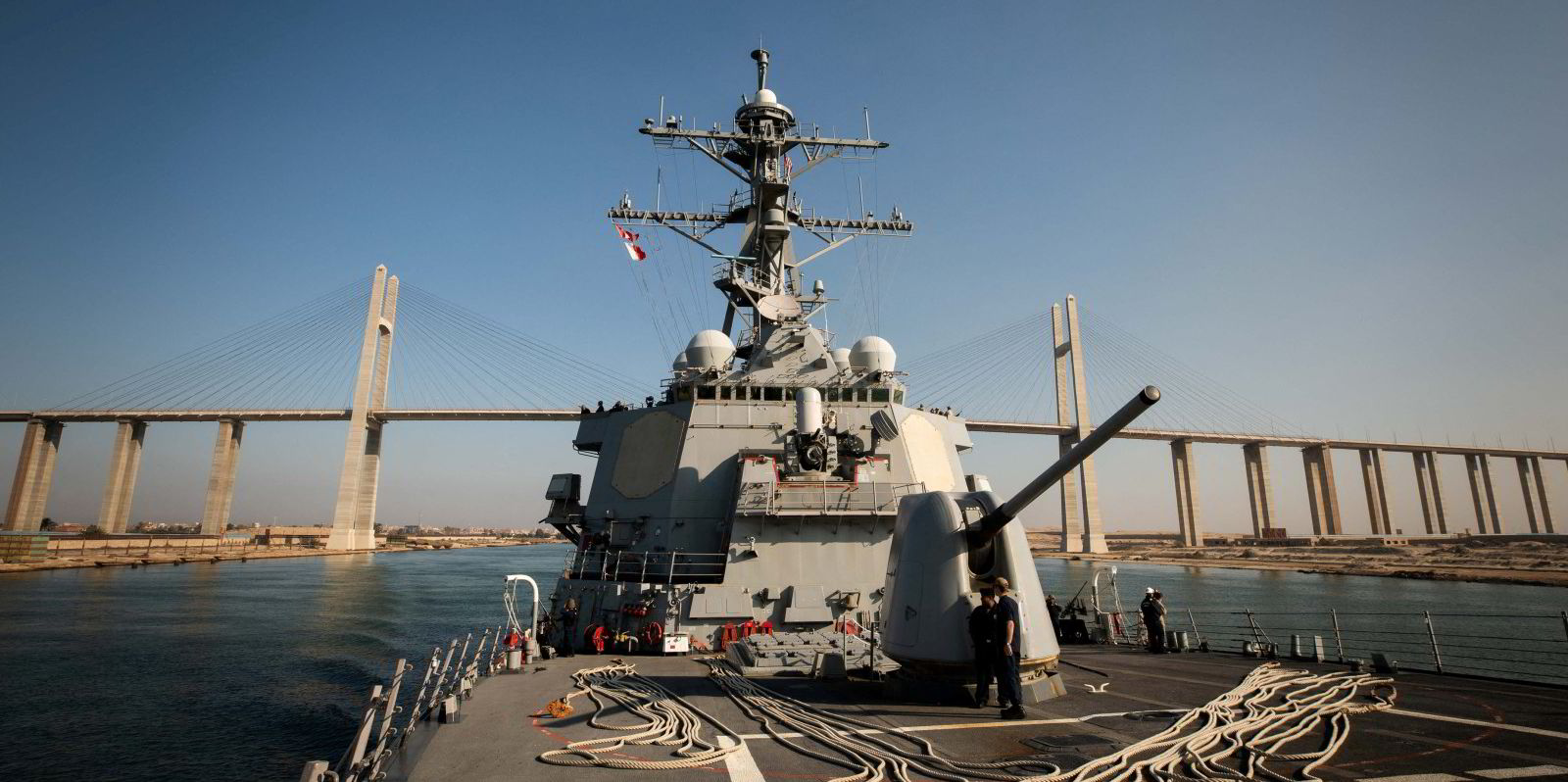Tanker owners appear to be comfortable sailing through the Suez Canal despite a slew of attacks against commercial shipping, according to early analysis by Braemar.
The shipbroker said few tankers have rerouted via South Africa, which can add 10 to 14 days to a typical voyage from Asia to Europe, or up to 3,500 nautical miles to a voyage, depending on the starting point.
“While the attacks have failed to influence the broader tanker market, the conversation — and the cost — has changed dramatically over the past few days,” Braemar said.
“For instance, suezmax charterers looking to fix Mediterranean/Far East via the Suez Canal are looking at a jump of $850,000. The area of war risk insurance has been extended, and insurance costs have jumped.”
Braemar said it knew of “one or two fixtures” via the Suez Canal that have failed in recent days, and said it was also aware of at least two suezmaxes that have been asked to delay passage through the Suez Canal until the situation settles down.
The shipbroker said it was still “fixing cargoes from via the Canal without Cape of Good Hope options”.
“Most owners we talk to are assessing on a case-by-case basis, even some of those that have publicly stated they would not transit the Suez Canal,” Braemar said.
The broker added that tankers with any “Israeli connections” are being avoided by charterers for fixtures through the Red Sea.
Around 9% of tanker trade has moved through the Suez Canal so far this quarter, with roughly 5% heading east and 4% heading west. Braemar said some 60% of eastbound oil tanker cargo is crude oil.
“Of all the barrels of oil moved around the world so far this quarter, 8% has moved through the Suez Canal (or Sumed pipeline) in either direction,” it said.
Braemar said that of the oil cargoes moving between the Atlantic basin and the eastern hemisphere, 57% heads through the Suez Canal, with the remaining 43% sailing via the Cape of Good Hope.
“Nearly all oil heading east via Cape of Good Hope is crude, while 51% of flows heading West is CPP, 40% crude, and a small volume of biofuels.
“Boosted by West-Russian crude (mostly Urals) moving into India and China since the European import ban, westbound flows via the Suez Canal have risen strongly, while flows via the Cape of Good Hope have reduced.
“In the opposite direction, flows of crude, diesel and jet have all increased, mostly to replace lost European imports of Russian crude oil and refined products,” the broker said.
BP said on Monday that it would pause all shipments through the Red Sea after attacks on merchant vessels escalated, while Norway’s Equinor made a similar announcement the same day.
Maersk Tankers and Euronav also said late last week that they were insisting on options giving them the right to avoid the area.
However, the Belgian tanker owner later went a step further, saying it would avoid the area altogether.





